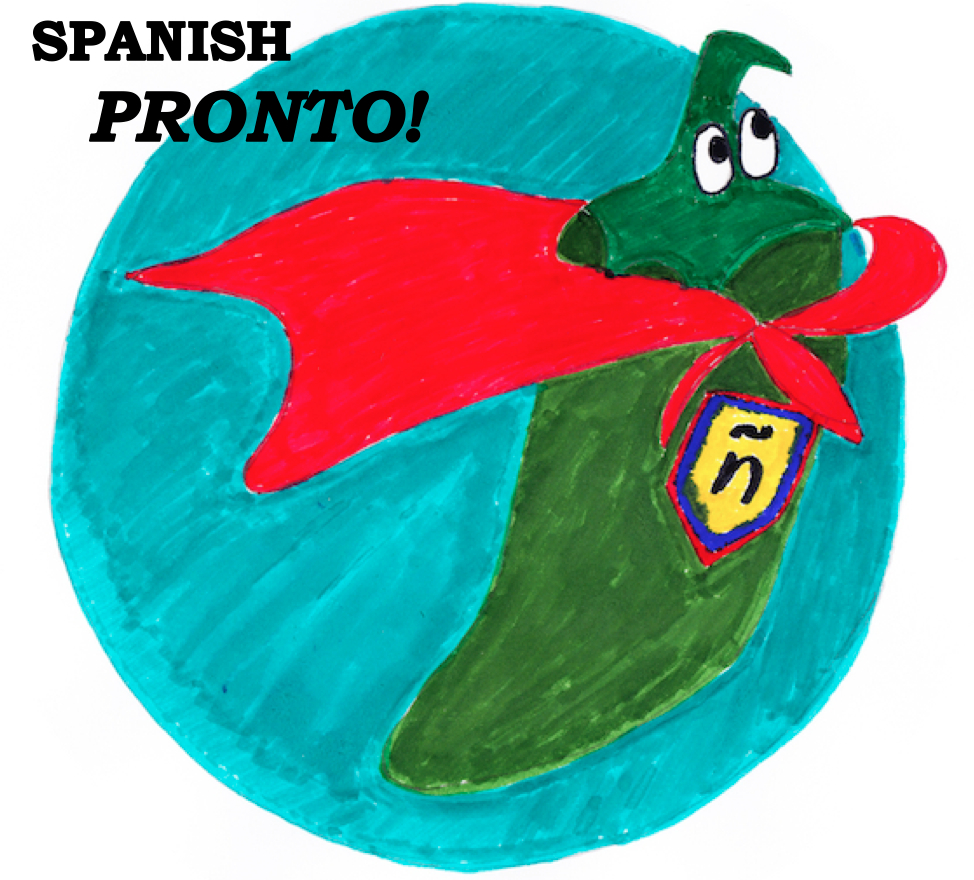
Spanish Vocabulary
Learn 10 Spanish words per day and know 2,500 words after one year!Many words in Spanish and English are similar, but similar words can have very different meanings, so be careful.
cuenta count; account; restaurant checknivel m. level
millones m. millions (millón, millones)
mil m. thousand (mil, miles)
ciento (cien) hundred
fin m. end
tarde f. late; afternoon, evening
varios several (varios, varias)
mayoría majority, most
único only, unique (único, únicos, única, únicas)
Words pronunciation: 0:39 (39s)
'One million dollars' is 'un millón de dólares' ('one million [of] dollars'). No second 'i' in millón. 'Two-and-a-half million dollars' is written as either '2.5 [pronounced "dos punto cinco"] millones de dólares' or 'dos millones y medio de dólares.' In countries where '2,5' is used, the pronunciation would be "dos coma cinco."
'One hundred' on its own—and also before 'thousand' [mil], 'million' [millón], etc.—is 'cien.' When combined with other numbers, 'one hundred' is 'ciento.'
100 cien
101 ciento uno, ciento una, ciento un
102 ciento dos
123 ciento veintitrés
133 ciento treinta y tres
143 ciento cuarenta y tres
100 cien
200 doscientos, doscientas
300 trescientos, trescientas
400 cuatrocientos, cuatrocientas
500 quinientos, quinientas
600 seiscientos, seiscientas
700 setecientos, setecientas
800 ochocientos, ochocientas
900 novecientos, novecientas
999 novecientos noventa y nueve, novecientas noventa y nueve100,000 cien mil
100,000,000 cien millones (de)
Numbers pronunciation: 0:52 (52s)
'Tarde' translates both as 'afternoon' and as 'evening.' Although in English, we might say 5:00 in the afternoon or 5:00 in the evening (5:00 being, roughly, the dividing line), in Spanish, 'tarde' is quite often used for times as late as 7:30ish. The dividing line can vary by country, and by the hour it usually gets dark ('noche'/'night').
'Único' sounds so much like the English 'unique,' that it can be difficult for English-speakers to accept that it also means 'only'; it does.
Whether a noun in Spanish is male or female can be difficult to tell. Usually, but not always, nouns ending with an '-o' will be masculine and nouns ending in an '-a' will be feminine. Some of the more well-known exceptions include 'la mano' ('the hand'), 'la modelo' ('the [female fashion/art] model'), 'el día' ('the day'), 'el problema' ('the problem'), 'el mapa' ('the map'), and 'el planeta' ('the planet').
Any noun ending in '-tad', '-dad', '-tud', or '-ción' will be feminine: 'la amistad' ('[the] friendship'), 'la felicidad' ('[the] happiness'), 'la virtud' ('[the] virtue'), 'la canción' ('the song').
The gender of nouns ending in consonants (i.e., not a, e, i, o, or u) or in '-e' can seem unpredictable. For these nouns, and for nouns ending in '-o' or '-a' that don't follow the "rule," I will indicate the gender for you, as I did above for 'el nivel,' 'los millones,' 'el fin,' and 'la tarde.' Where the gender is more predictable (as in 'la cuenta,' 'el cien(to),' 'la mayoría'), you can usually just assume it is the gender you would expect.
'Mayoría' is only used when describing the 'majority' of a group of things or persons. To say 'the majority of the money,' 'the majority of the time,' or some other expression involving more than 50% of a singular thing, 'majority' would be expressed as 'la mayor parte' ('the greater part').
¡cuenta regresiva!…tres, dos, uno, cero,…¡despegue! countdown!…three, two, one, zero,…lift-off!el monte Everest tiene una altura de 8848 metros sobre el nivel del mar Mount Everest has a height of 8848 meters above sea level
la edad de la Tierra es de unos 4.54 millones de años the age of the Earth is about 4.54 million years
el Quijote fue publicado en 1605 ('mil seiscientos cinco') Don Quixote was published in 1605
saqué un cien en el examen I got a hundred on the test
asistieron a la fiesta más de doscientas personas more than two hundred people attended the party
la reunión es a las 6:00 ('seis') de la tarde the meeting is at 6:00 in the evening
la Procuraduría baraja varias hipótesis the prosecutor's office is considering (i.e., shuffling [as in cards]) several hypotheses
la mayoría de mis amigos pasaron la mayor parte del día en la playa most of my friends spent most of the day on the beach
este cuadro es el único pintado por ella this painting is the only one painted by her
Examples pronunciation: 1:10 (70s)
© 2017-2018 Chris Marquardt, Spanish Pronto
http://www.spanishpronto.com/vocabulary_0001.html
http://www.spanishpronto.com/vocabulary_0002.html
http://www.spanishpronto.com/vocabulary_0003.html
http://www.spanishpronto.com/vocabulary_0004.html
http://www.spanishpronto.com/vocabulary_0005.html
http://www.spanishpronto.com/vocabulary_0006.html
http://www.spanishpronto.com/vocabulary_0007.html
http://www.spanishpronto.com/vocabulary_0008.html
http://www.spanishpronto.com/vocabulary_0009.html
http://www.spanishpronto.com/vocabulary_0010.html
http://www.spanishpronto.com/vocabulary_0011.html
http://www.spanishpronto.com/vocabulary_0012.html
http://www.spanishpronto.com/vocabulary_0013.html
http://www.spanishpronto.com/vocabulary_0014.html
http://www.spanishpronto.com/vocabulary_0015.html
http://www.spanishpronto.com/vocabulary_0016.html
http://www.spanishpronto.com/vocabulary_0017.html
http://www.spanishpronto.com/vocabulary_0018.html
http://www.spanishpronto.com/vocabulary_0019.html
http://www.spanishpronto.com/vocabulary_0020.html
http://www.spanishpronto.com/vocabulary_0021.html
http://www.spanishpronto.com/vocabulary_0022.html
http://www.spanishpronto.com/vocabulary_0023.html
http://www.spanishpronto.com/vocabulary_0024.html
http://www.spanishpronto.com/vocabulary_0025.html
http://www.spanishpronto.com/vocabulary_0026.html
http://www.spanishpronto.com/vocabulary_0027.html
http://www.spanishpronto.com/vocabulary_0028.html
http://www.spanishpronto.com/vocabulary_0029.html
http://www.spanishpronto.com/vocabulary_0030.html
http://www.spanishpronto.com/vocabulary_0031.html
http://www.spanishpronto.com/vocabulary_0032.html
http://www.spanishpronto.com/vocabulary_0033.html
http://www.spanishpronto.com/vocabulary_0034.html
http://www.spanishpronto.com/vocabulary_0035.html
http://www.spanishpronto.com/vocabulary_0036.html
http://www.spanishpronto.com/vocabulary_0037.html
http://www.spanishpronto.com/vocabulary_0038.html
http://www.spanishpronto.com/vocabulary_0039.html
URL for this page: http://www.spanishpronto.com/vocabulary_0022.html